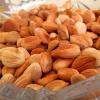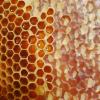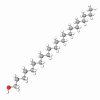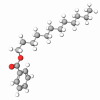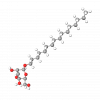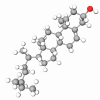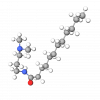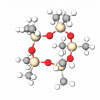Carnauba is an organic vegetable wax that comes from the leaves of a Brazilian Palm Tree called the "Tree of Life" (Copernicia Cerifera). Carnauba Wax is naturally exuded by the leaves of the Copernicia Cerifera palm to conserve the moisture within the tree and its leaves.
The "Carnauba Palm" grows in the northern and northeastern parts of Brazil along river banks, valleys, and lagoons where the soil is dark and fertile. The trees need very little water to grow, they commonly grow to a height of 40-50 feet The natives in the surrounding area use the various products of the tree for many necessities in their lives; hence the name ''Tree of life". Only in Northern Brazil does the Carnauba Palm produce wax. The leaves containing the wax are harvested from the trees from September to March, and the color and quality are governed by the age and the care used in processing the wax.
In its natural state, pure Copernicia Cerifera is actually harder than concrete. One of its most interesting properties is that it swells and closes its pores when exposed to water. Copernicia Cerifera wax is widely used in stick applications. It is the hardest natural wax and has a lustrous composition, making it the leading choice for food, pharmaceutical coatings, and polishes.
By refining Carnauba wax, it is now possible to generate an extremely pale refined wax using a unique process. It is exclusively prepared from pure Carnauba wax without any other oils or additives. It is called White Carnauba and has a pronounced crystalline structure, and its excellent features include extreme hardness and high gloss. Thanks to its high acid number, it is easily saponified and, therefore, ideal for producing stable wax emulsions of many different kinds. All normal saponification agents, such as ammonia, amines, and lyes, can be included.Boraxx can be used as a mild, skin-friendly saponification agent for cosmetic emulsions. It can be used to adjust the consistency of both cold creams and perfume creams. As retarding agent, it prolongs the cooling effect of cold cream or the long-lasting scent of perfume cream, with the added advantage that Copernicia Cerifera wax itself is practical without smell, in contrast to other refined Carnauba waxes.
It can also be used as a base material for decorative cosmetic products, particularly lipstick and eyeshadow. Lipstick, in particular, profits from the wax's ability to absorb oils and disperse pigments. Purified Carnauba can be used as a bonding agent with lanolin, paraffin oil, isopropyl stearate, and perfume to produce eyeshadow and pressed rouge.


